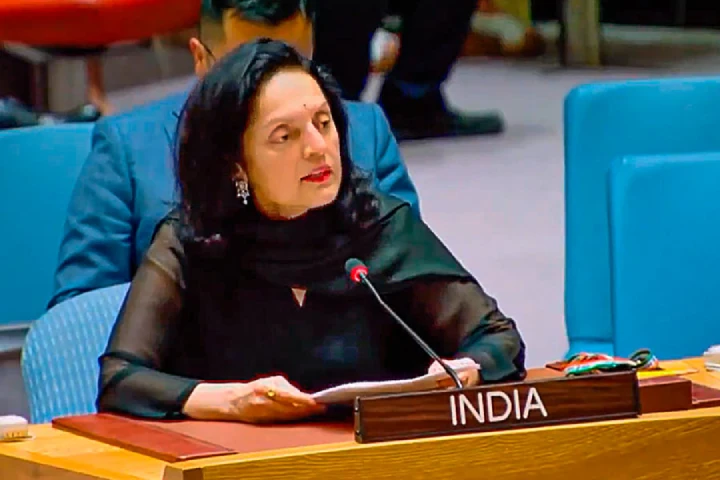Pressing the case for Security Council reforms, India highlighted the consensus reached at the more representative G20 summit on issues that cannot be resolved through the UN's highest decision-making body stuck in “Cold War” mode. Is possible.
Citing the example of consensus, Ruchira Kamboj, India's permanent representative to the G20 summit last year, said on Tuesday, “We all know that issues on which the UN Security Council has failed to reach consensus require more progress and solutions outside.” “Have been seen.” Presided over by Prime Minister Narendra Modi in New Delhi.
“Therefore, unless we change the structure of the permanent membership and make it reflect today’s realities, diplomacy and dialogue will not have a real chance of finding solutions to our challenges,” he said at a General Assembly meeting celebrating its second anniversary. . Veto initiative under which the permanent members of the Security Council will have to explain their vetoes.
Due to polarization among permanent members, the Council has not been able to take action on the Ukraine war, now in its third year.
But the G20 summit of major economies. While the Council was also attended by opponents, Ukraine's declaration reached consensus that “all States should refrain from the threat or use of force for territorial acquisition against the territorial integrity and sovereignty or political independence of any State” and “its The use or threat of use of nuclear weapons is unacceptable”.
Consensus was possible due to the broad membership of the G20 and the equality of all participating countries.
The veto initiative was adopted in a General Assembly resolution in 2022 as a response to Security Council inaction on Ukraine due to the veto.
UN General Assembly President Dennis Francis said, “It is precisely because of its state of inertia that we must increase momentum for Security Council reform – reinvigorating the Council's capacity to meet its responsibilities.”
“I also strongly urge Member States, especially Council members, to take this debate as an opportunity to bridge the divides among themselves and seek effective solutions with greater involvement of the General Assembly,” he said.
“The UN Security Council's inaction and use of the veto” is not only because the veto is being used, but also because of the “binary nature of the Council's membership,” which does not reflect contemporary realities, and So this ensures that the Council takes decisions in the old ‘Cold War’ mode,” Kamboj said.
“Unless we change the structure of the permanent membership and make it reflect today's realities, diplomacy and dialogue will not have a real chance of finding solutions to our challenges,” he said.
“What is very clear today is that the majority of Member States, including those that were not even independent at the time of the drafting of the UN Charter, want reforms and do not feel represented in decisions,” Kamboj said. UN Security Council.”
He hit out at the “hidden veto” that has hindered the Security Council reform process that most member states want.
At the Intergovernmental Negotiations (IGN) for Council reform, he said, “a minority group of naysayers” is stalling the process by calling for consensus before the talks and by preventing the adoption of a negotiating text to move the discussions forward. .
Kamboj criticized the lack of transparency in the functioning of the Security Council and how it is used to hide the veto.
He cited the example of the Security Council's Sanctions Committee where members “cease and desist” on action against terrorists without explaining their actions.
China has often resorted to this maneuver to save the terrorists under the protection of Pakistan.
PressNews24 provides latest news, bollywood news, breaking news hollywood, top tech news, business standard news, indian economy news, world economy news, travel news, mumbai news, latest news mumbai loksabha election 2024, video viral news, delhi news, Only at PressNews24.in






